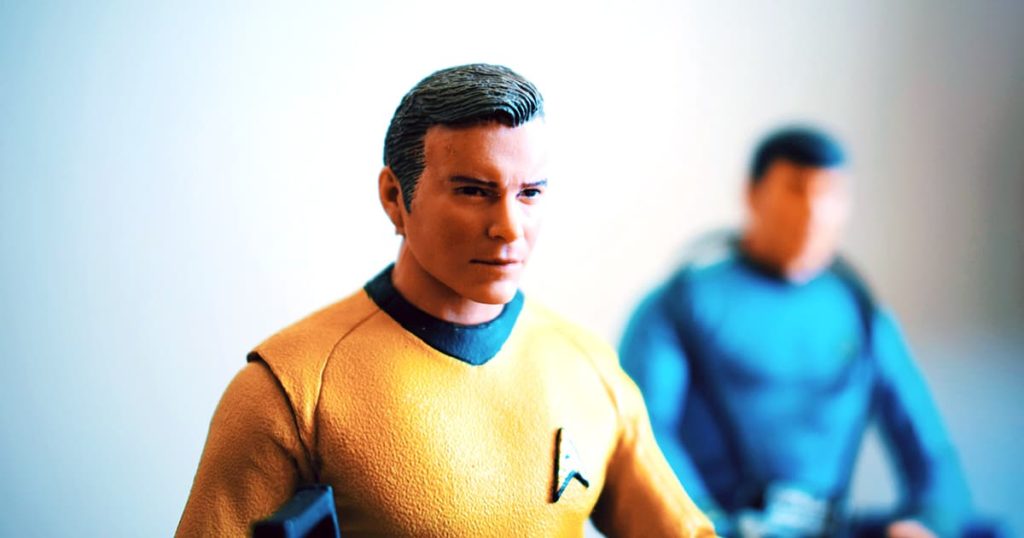
By Diana Rohlman and Joseph Orosco
Star Trek may be known best as an enduring pop culture touchstone, but the science fiction show has also become a vehicle for teaching science, ethics and philosophy at Oregon State University.
Two professors, from the College of Public Health and Human Sciences and the College of Liberal Arts, have been using Star Trek as a springboard in their classes to discuss everything from politics and religion to immigration and bioethics.
Debating ethics through the lens of Star Trek
Assistant Research Professor Diana Rohlman, in the School of Biological and Population Health Sciences, teaches “Science, Ethics and Star Trek” in the Honors College. A one-credit colloquia, the class introduces scientific topics and their associated ethical implications through the lens of Star Trek. Each class starts with a Star Trek episode, and students argue the ethical position of the different sides.
In the episode “Critical Care” (Voyager, Season 7, Episode 5), students argue the ethical merits of prioritizing limited medical resources to the segment of society that was considered essential (engineers, scientists, medical doctors), at the expense of those in the working-class.
In “Nothing Human” (Voyager, Season 5, Episode 8), students debated the use of data that was collected unethically, i.e. data collected from torture or non-consenting prisoners.
Once the debate is finished — and the consensus is rarely reached — the class segues into a real-life case study; such as prioritization of the Ebola vaccine and use of organ-transplant data generated from illegally obtained organs. The focus on Star Trek enables a thoughtful discussion of the topic.
Star Trek is so divorced from real life in many ways, that the distance creates a comfortable space to discuss these emotional, difficult decisions. It is not uncommon for students to decide one way during the Star Trek discussion, and quickly change their mind when they place the same discussion into the context of real life.
Ethics lessons from Star Trek
In the College of Liberal Arts, Professor Joseph Orosco teaches the “Star Trek and Philosophy” course. The class introduces students to basic ethical theories, such as virtue ethics and utilitarianism, through weekly viewings of Star Trek: The Original Series. Students then use those theories to examine social and political controversies as they are allegorically presented through Star Trek.

Students watch the episode “Space Seed” which introduces Captain Kirk’s arch-nemesis, Khan, who is a genetically enhanced super human. They then consider whether medical technology that could theoretically improve human brain or heart functioning would be moral given the possible consequences, some of which are hinted at in the Star Trek universe.
Another favorite episode is “A Taste of Armageddon” in which the crew of the Enterprise find themselves caught in the middle of a centuries-old war between two planets that is conducted entirely through virtual computer strikes rather than bombs and bullets. This episode prompts the class to discuss the idea of whether war is ever an ethical option to social conflict and to examine the ethical constraints to warfare as they are embedded in international law and treaties.
For the final assignment, students research a real political controversy in the world today, such as drug abuse, immigration or homelessness, and then outline a Star Trek episode of their own in which the controversy is a central problem that must be solved.
Students use science fiction to enlarge their idea of what is possible in the world and then engage their imagination, along with their ethical knowledge, to come up with responses to issues that often puzzle policy makers.
Register for HC 407 Seminar in Science Ethics and Star Trek.